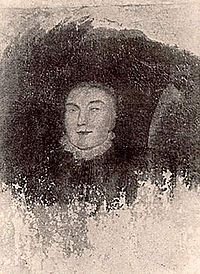
James Louis O'Donel
Encyclopedia

Bishop
A bishop is an ordained or consecrated member of the Christian clergy who is generally entrusted with a position of authority and oversight. Within the Catholic Church, Eastern Orthodox, Oriental Orthodox Churches, in the Assyrian Church of the East, in the Independent Catholic Churches, and in the...
of St. John's
St. John's, Newfoundland and Labrador
St. John's is the capital and largest city in Newfoundland and Labrador, and is the oldest English-founded city in North America. It is located on the eastern tip of the Avalon Peninsula on the island of Newfoundland. With a population of 192,326 as of July 1, 2010, the St...
, Newfoundland
Newfoundland and Labrador
Newfoundland and Labrador is the easternmost province of Canada. Situated in the country's Atlantic region, it incorporates the island of Newfoundland and mainland Labrador with a combined area of . As of April 2011, the province's estimated population is 508,400...
.
James O'Donel was born into a prosperous family and received a classical education before entering the Franciscan
Franciscan
Most Franciscans are members of Roman Catholic religious orders founded by Saint Francis of Assisi. Besides Roman Catholic communities, there are also Old Catholic, Anglican, Lutheran, ecumenical and Non-denominational Franciscan communities....
order. After British-imposed laws restricting Catholicism ceased to be rigorously enforced, O'Donel was able to travel to Rome to study for the priesthood, becoming ordained in 1770. He later taught philosophy and theology in Prague
Prague
Prague is the capital and largest city of the Czech Republic. Situated in the north-west of the country on the Vltava river, the city is home to about 1.3 million people, while its metropolitan area is estimated to have a population of over 2.3 million...
, and in 1777 became the Franciscan Prior
Prior
Prior is an ecclesiastical title, derived from the Latin adjective for 'earlier, first', with several notable uses.-Monastic superiors:A Prior is a monastic superior, usually lower in rank than an Abbot. In the Rule of St...
in Waterford.
Following developments in England, Catholics in Newfoundland gradually gained religious liberty, made explicit by a public declaration by the Governor in 1784. Following a request from Irish merchants in Newfoundland, O'Donel was sent to St. John's as Prefect Apostolic the same year, largely to deal with the presence of "unlicensed" and "unruly" priests on the island. In addition to his personal popularity, one of his qualifications for the position was an ability to preach in Gaelic
Irish language
Irish , also known as Irish Gaelic, is a Goidelic language of the Indo-European language family, originating in Ireland and historically spoken by the Irish people. Irish is now spoken as a first language by a minority of Irish people, as well as being a second language of a larger proportion of...
.
O'Donel found the situation to be much as it was described, as insubordinate priests fought Irish battles. Accordingly O'Donel set about reorganizing the Catholic Church in Newfoundland. He built a chapel in St. John's, established parishes outside the capital, and gradually brought priests under his authority. During his first few years in Newfoundland, O'Donel also found that Catholic liberty was less than absolute, and was involved in an infamous incident in 1786 in which he was assaulted by Prince William Henry, later King William IV
William IV of the United Kingdom
William IV was King of the United Kingdom of Great Britain and Ireland and of Hanover from 26 June 1830 until his death...
. In 1796, O'Donel was consecrated as a bishop.
O'Donel's ministry in Newfoundland was largely characterized by trying to maintain peace, both between fellow Catholics and with the British. In 1800, an incipient Irish uprising involving soldiers in the St. John's garrison was forestalled when O'Donel, upon hearing of the plans, alerted the authorities. The 19th century historian Charles Pedley alleged that O'Donel received his information via the confessional, but no credible evidence for this claim has ever been adduced.
Theologically, O'Donel subscribed to the Augustinian
Augustine of Hippo
Augustine of Hippo , also known as Augustine, St. Augustine, St. Austin, St. Augoustinos, Blessed Augustine, or St. Augustine the Blessed, was Bishop of Hippo Regius . He was a Latin-speaking philosopher and theologian who lived in the Roman Africa Province...
position that religion imposes a "reverential fear" on mankind's "naturally licentious" nature. This, and his belief in the essential mystery of the divine nature gave rise to his support for religious tolerance, since God's inscrutability would inevitably lead to theological disagreement, but furthermore, as he wrote to his contemporary John Jones, "an observant [C]hristian of any denomination is...a better man".
O'Donel's health deteriorated in the early 19th century, and he resigned his position in 1807 and returned to Ireland. He died of shock in 1811 after suffering minor injuries in a fire.

